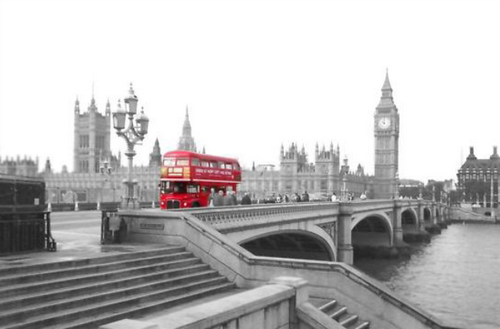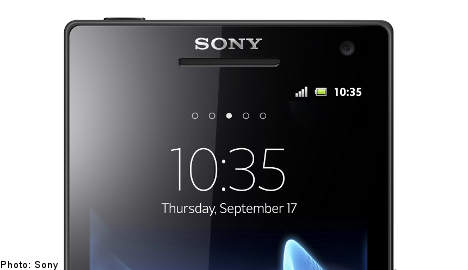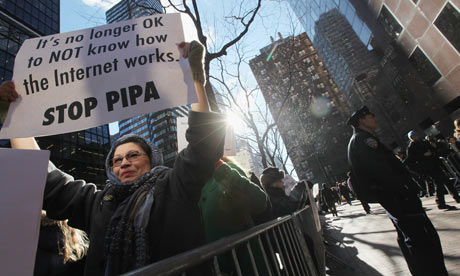1 US
EFF: Jailbreaking is not a crime

The Electronic Frontier Foundation stands out for jailbreaking, which enables users to hack their iPhone or iPad to run unauthorized code. Jailbreaking has been legal through exemptions in the Digital Millennium Copyright Act, but the exemption is set to expire in 2012. The EFF wants to expand it to specifically cover tablets and videogame systems through its campaign "Jailbreaking is Not a Crime."
2 UK
Photographers face copyright threat after shock ruling

Photographers who compose a picture in a similar way to an existing image risk copyright infringement now. UK souvenir maker Temple Island Collection Ltd. has won a ruling against New English Teas over the copyright of a photo of a London bus. Though the images are not identical, the judge ruled that the claimant's composition of the image, to include such features as the "visual contrast" of the bright red bus and monochrome background, were the photographer's "intellectual creation."
3 Pakistan
IPO Linkage program for students and industries
The Intellectual Property Organization of Pakistan (IPO) has launched a new program to explore avenues of mutual cooperation for establishing linkages among students and industries. A Record of Agreement between IPO and Centre of Law and Policy University of Management and Technology was signed on January 22nd. Participants highlighted IP related issues and stressed on adopting appropriate measures to curb counterfeiting and piracy besides giving legal protection to the genuine brand owners.
4 Russia
Court dismisses chanel's appeal in dispute over perfume trademark
On January 23rd, a commercial court of appeals upheld the court's dismissal of Chanel's lawsuit to cancel the patent watchdog's decision ceasing the legal protection of the Egoiste, one of Chanel's popular perfume trademarks, in Russia. Chanel argued that it had not been duly notified of the Patent Disputes Chamber meeting which ruled to end the trademark protection in 2004. Therefore, it was unable to prepare and submit documents to confirm the trademark's use in conformity with its international registration.
5 Japan
Ericsson name dropped from new Sony phone

Sony on January 10th launched its first mobile handset without the "Sony Ericsson" brand name, marking a symbolic end to its collaboration with Ericsson. The name change is a result of its decision to buy Ericsson's half of the partnership in October, 2011 for $1.47 billion. Ericsson CEO said that the separation was a "logical step," and that the decade long venture together had been a "perfect match."
6 Australia
"Nuckin Futs" snack to be sold in australia

A snack called "Nuckin Futs" has got the green light to be sold in Australia after regulators accepted the profanity it parodies was part of everyday speech. After a year of rejection, the trademark is accepted on condition that the product would not be marketed to children. Lawyers for the company said the product, mostly comprising edible nuts, would only be sold in pubs, nightclubs and other entertainment venues.
7 Trinidad and Tobago
Artists contemplate copyright
WIPO consultant Mary-Ann Richards speaks to Art Society members at NAPS about copyright issues. In January, the Art Society of Trinidad and Tobago gathered members and interested parties for a panel discussion about copyright. The focus of many questions on details related to artists' rights in their works and the misunderstandings that result was unsurprising. Mary-Ann Richards, WIPO consultant and Regional coordinator made a speech on the evolution of copyright.
8 US
Sopa, for or against it?

By far, the Stop Online Piracy Act (SOPA) and Protect Intellectual Property Act (PIPA) are essentially dead, but in January, the U.S. witnessed a strong opposition to the antipiracy bills. Wikipedia, Reddit, WordPress, Mozilla and BoingBoing shut down their sites in protestation. Google and Facebook say that SOPA threatens the "open" spirit that has led to the innovation we value in the internet. However, since the bills are aiming at fighting against acts of IP theft such as illegal filesharing and copying of movies and video games, they also have supporters from traditional media that rely on copyright to do business like Hollywood movies to brands like L'Oreal. But no matter how SOPA and PIPA end in America, they have definitely set an example for the legislation work of other countries. Ireland is soon to have a law similar to SOPA passed that would give music and movie companies the power to force Irish ISPs to block access to sites suspected of having copyright infringing material on them. Let's just wait and see how many countries will follow their steps.
9 U.S.
MegaUpload user data set for deletion

The companies that store the data of millions of MegaUpload users plan to start deleting their accounts. The site was shut down on January 19th following the arrest of seven men, including the company's founder Kim Dotcom, in New Zealand on U.S. accusations that they facilitated millions of illegal downloads of films, music and other content, costing copyright holders at least $500 million in lost revenue.






